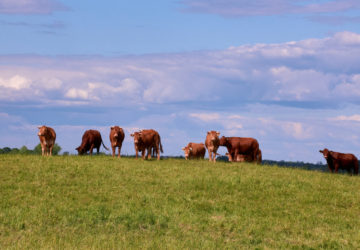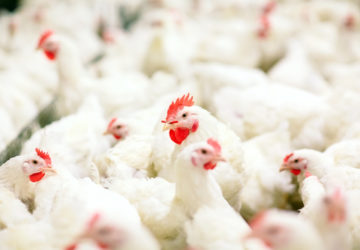The American Public Health Association (APHA), fresh from an annual conference held to promote government policies that threaten to control your day-to-day activities, issued a whopping 27 new policy statements today. APHA now considers its mission so broad that it even took a position on defense policy. Our only surprise was that food garnered a mere two statements. Those two items on APHA’s wish list? A ban on food ads aimed at children, and a moratorium on new large-scale animal farms.
In one proposal, APHA wants “legislation to eliminate food advertising aimed at young children on children’s television programs … Interim means should also be explored, such as having stricter limitations on the amount of advertising permitted on children’s television or placing a monetary surcharge on advertising for high-calorie, low-nutrition foods targeted at youth.”
Of course, food cops like the American Obesity Association support these exact policies when it comes to adults as well. Children are just the entrée. Kelly “Big Brother” Brownell let the cat out of the bag at the 2003 AHPA convention: “Another, very utilitarian reason for focusing on children, of course, is then you get away from these arguments about personal responsibility.”
APHA also wants “federal, state and local governments and public health agencies to impose a moratorium on new Concentrated Animal Feed Operations” (CAFOs). Not surprisingly, the anti-modern-farming zealots at the
Global Resource Action Center for the Environment (GRACE) knew about APHA’s policy three days before it was made public.
What’s APHA’s beef with efficient, large-scale livestock farms? The group has endorsed the “precautionary principle,” which demands proof that there are no dangers whatsoever from a given product or practice. Since it’s impossible to prove a negative — in this case, to prove that large-scale animal farming has no negative consequences for human health — this “principle” is a recipe for paralysis. APHA itself admits that there is no “scientific certainty” about the supposedly damaging effects of large-scale animal farms, but they’d like a moratorium anyway.
At a 2001 conference of the American Association for the Advancement of Science, anti-biotech leader Martin Teitel revealed the real purpose of the precautionary principle: “Politically,” he said, “it’s difficult for me to go around saying that I want to shut this science down, so it’s safer for me to say something like, ‘It needs to be done safely before releasing it.'” Requiring scientists or farmers to satisfy the precautionary principle, Teitel added, means “they don’t get to do it period.” The Wall Street Journal got it right when it called the precautionary principle “an environmentalist neologism, invoked to trump scientific evidence and move directly to banning things they don’t like.”
The precautionary principle is deeply dishonest. Unfortunately, as public health professionals become more and more interested in controlling our food and drink choices, they care less and less about being truthful with the American people. One speaker at the APHA conference proposed placing high-calorie snacks behind retail counters, next to cigarettes and pornography. How to silence critics? “You can probably rationalize it as cutting down on shoplifting,” he said.




